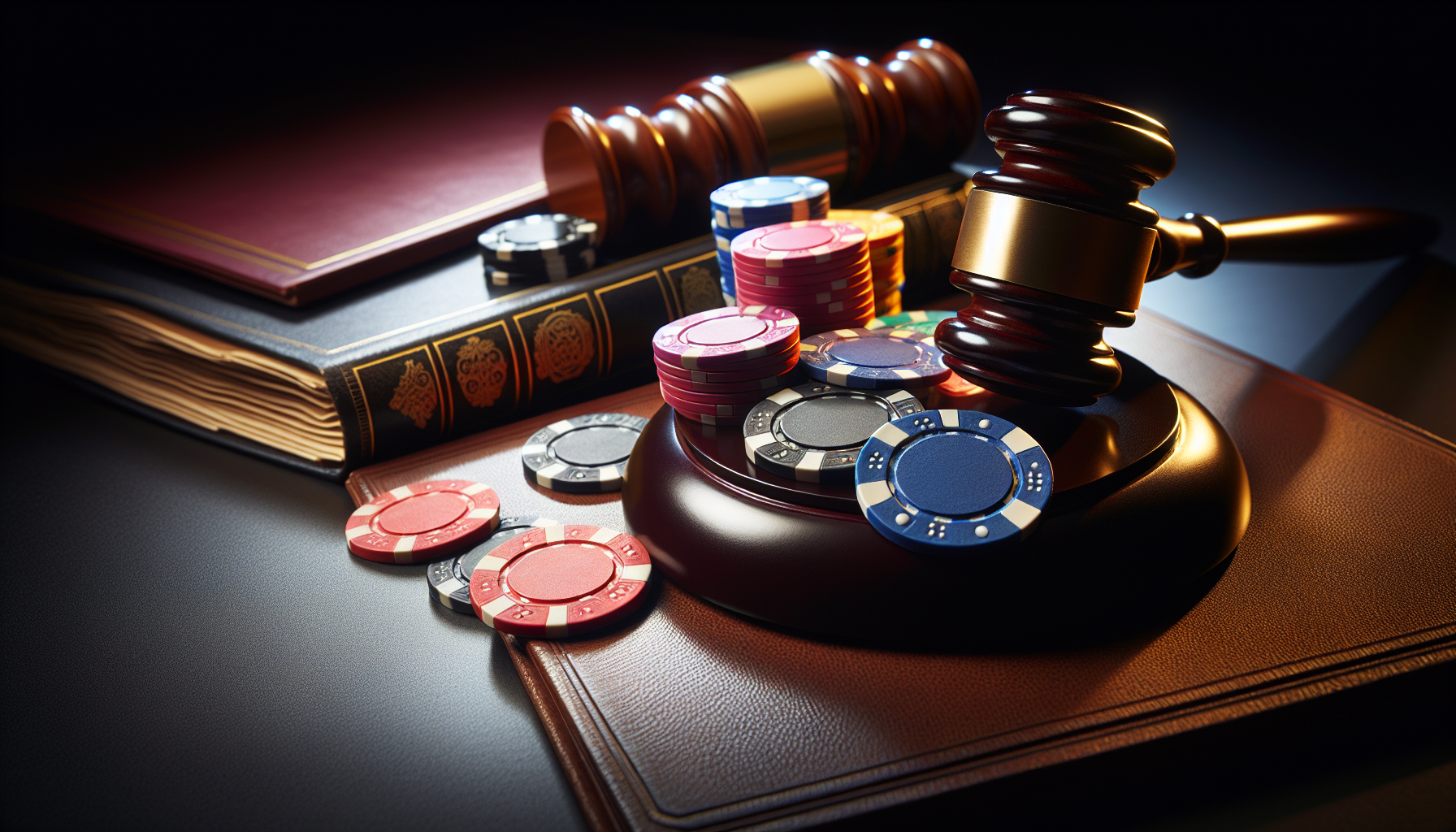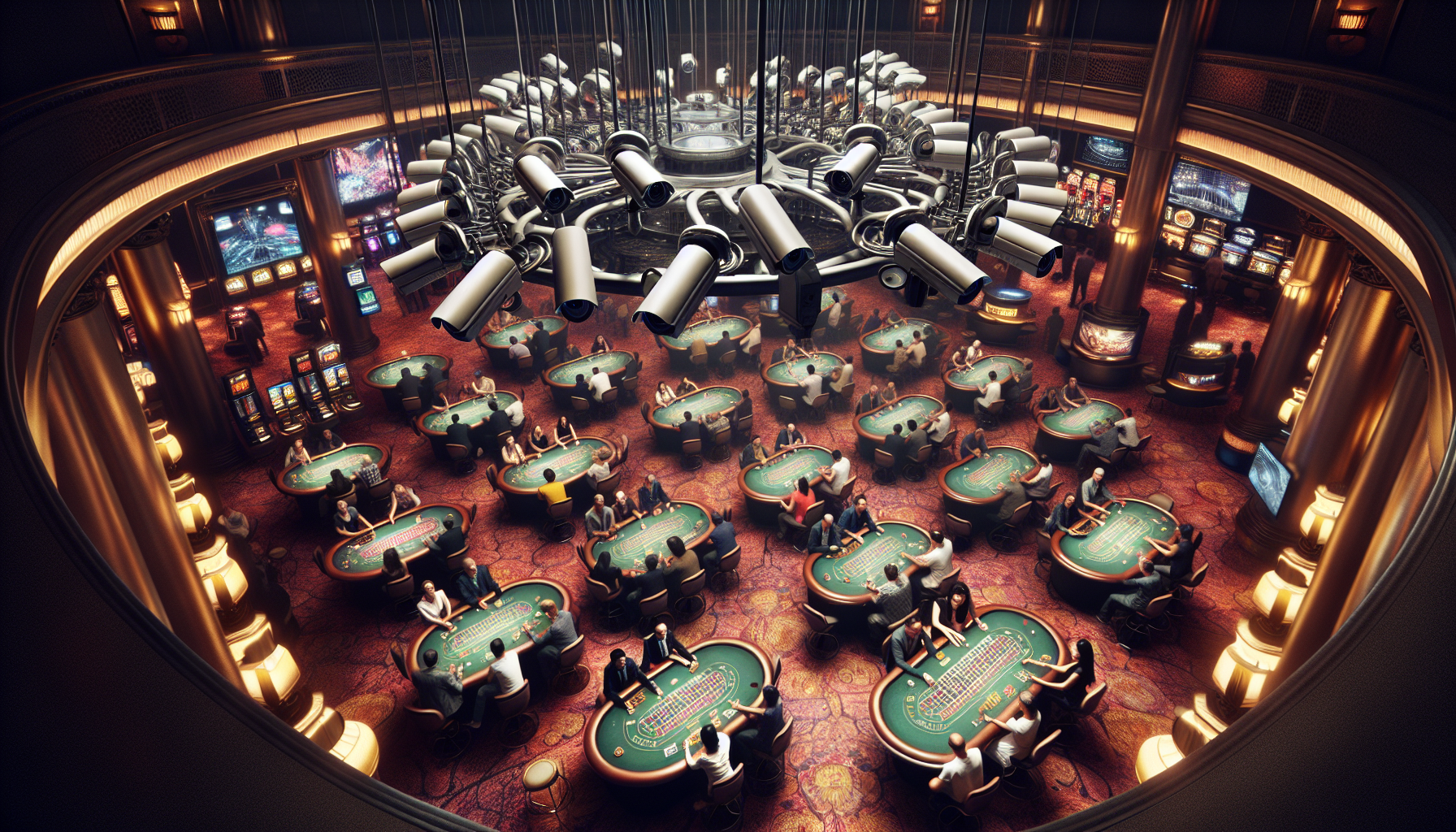
Yes, casinos can absolutely kick you out for winning—but here's what 99% of players don't understand: it's not about winning itself, it's about *how* you win. The difference between celebrating a million-dollar slot jackpot and getting escorted out by security comes down to one critical factor: whether your success threatens the casino's mathematical foundation. This guide exposes the insider mechanics of when, why, and how casinos identify "undesirable" winners, plus the legal framework that gives them this power.
The gaming industry operates on mathematical certainty: the house edge guarantees profit over time. When that equation gets disrupted, casinos act swiftly. But they distinguish sharply between three types of winning, each triggering vastly different responses.
| Type of Winning | Game Examples | Casino Reaction | Legal Status |
|---|---|---|---|
| Pure Luck | Slots, Roulette, Lottery | Welcome and celebrate | Fully legal |
| Skill/Advantage Play | Card counting in Blackjack | Removal and ban | Legal but unwelcome |
| Cheating | Marked cards, device use | Arrest and prosecution | Criminal offense |
When you hit a $50,000 jackpot on a slot machine, casino staff literally roll out the red carpet. They take your photo, hand you an oversized check, and feature your win in marketing materials. This reaction stems from a simple business reality: luck-based wins are built into their profit model.
Slot machines operate with programmed Return to Player (RTP) percentages—typically 85-98%. For every $100 wagered, the machine returns $85-98 to players over time. Your massive win represents part of this mathematical distribution. The casino knows thousands of other players feed money into machines that won't pay out, subsidizing your jackpot.
The same principle applies to roulette, craps, and other chance-based games. No skill can overcome the built-in house edge, so casinos welcome big winners as walking advertisements proving "anyone can win."
Using electronic devices, marking cards, or colluding with dealers crosses from gaming into criminal fraud territory. Nevada Revised Statutes 465.083 makes device-assisted play a felony punishable by up to six years in prison and $10,000 in fines.
This isn't just a casino ban—it's a criminal record that follows you permanently.
Advantage play occupies a unique legal gray area. Players use legal methods to gain mathematical edges without breaking laws, but they violate the casino's fundamental business model.
Card counting in blackjack exemplifies this perfectly. By tracking played cards, skilled players determine when remaining decks favor them and adjust bets accordingly. This can shift the house edge from favoring the casino to favoring the player—something casinos cannot tolerate.
> "Card counting is not cheating—it's thinking. But for casinos, that's reason enough to show you the door."
The advantage play world combines mathematics with psychology, where legal strategy becomes grounds for ejection. Understanding this landscape proves crucial for serious casino players.
Card counting isn't memorizing every played card—that's Hollywood fiction. Instead, it's a mathematical system assigning point values to cards and tracking the ratio of high cards (10s, face cards, Aces) to low cards (2-6) remaining in the deck.
The basic Hi-Lo system works this way:
When the count turns positive, more low cards have been played, meaning the remaining deck is rich in high cards—favorable for players. When negative, the deck favors the house. Skilled counters increase bets when counts are positive and minimize them when negative.
Card counting is completely legal. You're using your brain to process publicly available information. No federal or state law prohibits mental calculation during gambling.
However, casinos operate as private businesses on private property. Just as restaurants can refuse service to customers without shoes, casinos can ban players for any non-discriminatory reason—including excessive skill at their games.
This creates a fascinating legal paradox: you can't be arrested for card counting, but you can be trespassed (officially banned) from casino property. Returning after trespass becomes criminal trespass, which *is* illegal.
Casino surveillance systems and floor personnel are trained to spot advantage players through behavioral patterns differing from typical recreational gamblers:
Betting Patterns:Experienced advantage players employ sophisticated camouflage to extend playing time:

The identification and removal process follows a predictable pattern unfolding over time. Understanding this progression helps players recognize when they're under scrutiny and how to respond appropriately.
Before direct confrontation, you'll notice subtle staff behavior changes:
Surveillance Indicators:Smart players recognize these signals and often leave voluntarily to avoid formal confrontation.
When casino management decides to act, the approach remains typically professional but firm. A pit boss or casino host interrupts play with phrases like:
This conversation serves multiple purposes: documenting the casino's position, giving you opportunity to leave voluntarily, and establishing grounds for trespass if you refuse compliance.
If you continue playing after warnings, or if the casino considers your advantage play particularly egregious, they escalate to formal trespass proceedings involving:
Documentation Process:Legal Implications: Trespass notices legally prohibit casino property entry. Violation becomes criminal trespass, punishable by fines and potential jail time.
Absolutely not. Casinos cannot confiscate legitimately won money or chips, even when banning you for advantage play. They must honor all outstanding chips and pay winnings earned through legal play.
However, they can:
Professional advantage players follow strict protocols when confronted:
Arguing with casino personnel serves no purpose and can escalate civil matters into criminal ones if you refuse to leave when asked.

Casino authority to ban skilled players rests on fundamental property rights extending far beyond the gaming industry. Understanding this legal framework explains why advantage play, while not illegal, remains commercially unwelcome.
According to [Nevada Gaming Commission Regulation 5.011], licensed gaming establishments have broad discretion controlling facility access, provided they don't engage in unlawful discrimination based on protected characteristics.
The legal principle remains straightforward: private businesses can refuse service to anyone for reasons not violating anti-discrimination laws. This right, established in common law and reinforced by state statutes, gives casinos nearly unlimited authority controlling their customer base.
Key Legal Precedents:Casinos cannot ban players based on:
However, they can ban for:
The casino industry's battle against skilled players has created legendary figures whose stories illustrate real-world application of these policies.
In April 2014, Oscar winner Ben Affleck was asked to leave blackjack tables at Hard Rock Hotel & Casino in Las Vegas. The reason? His play was "too good." Affleck, who studied card counting techniques for film roles, demonstrated sufficient skill to threaten the casino's edge.
The incident gained massive media attention when Affleck was photographed leaving the casino. Rather than deny allegations, he embraced them, later telling *Details* magazine: "I took time to learn the game and became a decent blackjack player. Once I became decent, casinos asked me not to play blackjack."
Affleck's case illustrates how celebrity status provides no protection against advantage play policies. His ban reportedly extended to other Hard Rock network properties.
Perhaps no group better exemplifies the cat-and-mouse game between casinos and advantage players than the MIT Blackjack Team. Operating from the 1980s through early 2000s, this group of students and graduates used sophisticated card counting techniques and team play strategies to win millions from casinos.
Their system involved:
The team's success led to industry-wide changes in surveillance and detection methods. Most members were eventually identified and banned, but their legacy inspired the bestselling book ["Bringing Down the House"] and the Hollywood film "21."

There's no limit to slot machine winnings without facing problems. Slot jackpots, even million-dollar ones, are based purely on luck and celebrated by casinos. Random number generators ensure the house maintains mathematical edges regardless of individual payouts.
Yes, typically. Major casino corporations maintain shared databases and honor each other's exclusion lists. MGM property bans generally extend to all MGM-owned casinos worldwide. This policy applies to most major casino chains including Caesars Entertainment, Boyd Gaming, and Station Casinos.
The key difference lies in regulatory approach. In New Jersey, casinos cannot ban players solely for card counting (*Uston v. Resorts International*), but they can implement countermeasures like:
These measures make card counting impractical without technically banning players. Nevada casinos have broader exclusion rights and can ban advantage players outright.
Yes, several industry databases track advantage players:
However, these systems primarily focus on cheaters and professional advantage players, not recreational winners.
Not at all. Basic strategy cards are legal and even welcomed by many casinos because they only minimize house edges—they don't eliminate them. Unlike card counting, basic strategy doesn't change based on already-played cards, so it poses no threat to casino mathematical advantages.
Many casinos sell basic strategy cards in gift shops and allow their use at tables. This actually benefits casinos by reducing player losses to predictable levels, encouraging longer play sessions.
---
*Understanding casino policies around skilled play helps navigate this complex landscape whether you're a recreational player or serious strategist. Remember: while advantage play isn't illegal, it's a business decision casinos take seriously. Play responsibly and within your means, regardless of skill level.*